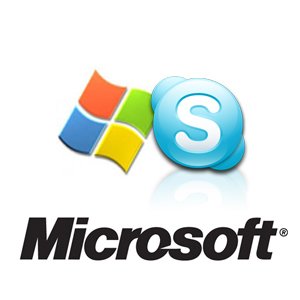Over the last 6 years phone service over the internet has grown in leaps and bounds. I remember when making calls home from college for 7 cents a minute after 7PM was a huge deal. And of course when the whole idea of a flat rate for unlimited calls was introduced, I thought it couldn’t get any better than this!
But it did get better – much better.
In 2003 Skype came along which took the world by storm by allowing anyone with a computer to make a free phone call to another Skype user’s computer and the two users could have a regular phone conversation over the phone.
Then it got better – if you wanted to call someone who didn’t use Skype you could do that too for pennies!
Skype’s Limitations
Skype was a huge success but does have its limitations. For starters, you have to purchase a “Skype” phone if you want to actually use a regular phone. You can however use a headset which is what most people do.
Skype uses the open internet to send and receive voice transmissions. By using the open internet, the voice quality can often be degraded, choppy and unfortunately more prone to hackers. In addition, Skype does not operate like a regular phone service that provides E911 services.
Skype and Business
Skype does now offer a service for business, but what part of Skype do businesses use? Most businesses use Skype for integrated collaboration – such as international calls, video conferencing and instant messaging.
Skype is popular among small businesses with very limited budgets, from the work at home blogger to the recently unemployed programmer developing niche software programs for industries such as custom picture framing software or submitting college applications via software apps for the Android.
Skype is even promoting that they can integrate with existing PBX phone systems, which brings us to the topic of why Microsoft recently purchased Skype for over 8 Billion dollars.
Microsoft, Skype and Lync
At first, this may not make sense to many people – what interest would Microsoft have in Skype except to integrate it into their operating systems and leaving Apple in the cold? What does Microsoft have to do with phones? Well, actually a lot.
Microsoft is a leading champion in office technologies such as their Windows OS, and of course Office products. However, Microsoft also owns a VoIP solution for businesses called Microsoft Lync. Originally it was called OCS for Office Communications System, however in 2010 they released an upgrade with a rebranded name of Lync.
Lync belongs to a class of VoIP products that works with integrated VoIP services that are of superior quality and greater stability than Skype. While Skype goes straight through the open internet, Lync can be used with regular phone lines, T1s, PRI’s or even SIP. The trend is moving ever closer to SIP (Session Initiation Protocol) which uses a different set of protocols which are more secure and operate on a different “layer” of the internet. This produces a higher call quality and the calls are generally monitored and managed on a carrier or service provider level.
Lync and other products which fall into the same line of VoIP service offer something that Skype does not, at least to any great degree, and that is Unified Communications – also known as UC. UC allows the phone system to work more seamlessly by making it easier to “communicate” with other office members regardless of location. Some features are transferring calls, handling multiple lines at once, call parking, music on hold, Instant Messaging, and binding phones. Binding phones mean you can assign your desk phone to ring to any other phone such as a cell phone – whether the phone is forwarded or rings simultaneously is determined by a setting in the UC system.
The Future
This brings us back to what does Microsoft now have in store for Skype since they purchased it?
Some speculate they will integrate Skype and Lync, while others speculate they will change Skype to be more in line with general VoIP infrastructure. However no matter which direction they choose to go, the question remains, will Skype still be free and who will be allowed to use it?
My personal opinion is very mixed. They certainly did not purchase it for the software itself, as they could easily duplicate it. Therefore, one has to conclude they purchased Skype for the sheer number of subscribers – and a business only does that if they believe they can turn those subscribers into paying customers. Otherwise what would be the value except for a vast ocean of marketing reach?
As with all things… we’ll just have to wait and see what Microsoft has up their sleeves.
